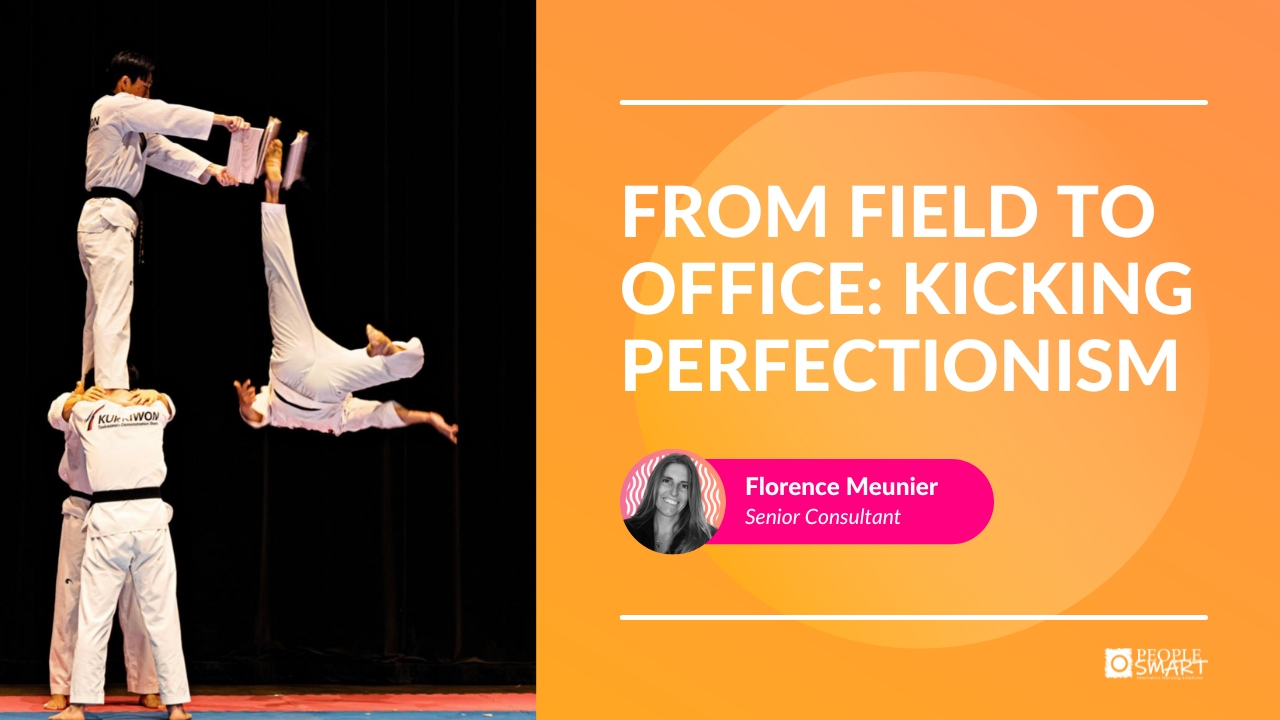The Paris 2024 Olympic Games are considered by most as the best even seen. Something that is probably said every 4 years, and if as a French I am glad, I imagine that the LA 2028 will crave for the same title.
The Olympic Games have long been a symbol of peak human performance – athletes pushing the boundaries of what’s possible in all possible sports.
As a coach, manager, sports fanatic and former football coach I learnt a lot from this event and I believe that there are many lessons for business leaders that can be taken.
From the discipline of training to the importance of mental strength, the Olympics offer insights into leadership that can help business professionals elevate their game, just like an Olympian.
1. Chasing Excellence: The Relentless Drive to Improve
Olympic athletes dedicate their entire lives to mastering their sport. Every day is focused on becoming just a little bit better – whether it’s shaving milliseconds off their sprint time or perfecting a gymnastics routine. This drive for continuous improvement is something business leaders can relate to, or should.
Just like athletes, great leaders should never stop learning.
If we look at what athletes do:
- constantly refine their skills,
- seek out new strategies, and
- adapt to stay ahead in a fast-moving world, using new methods or technologies. Who has seen Gabriel Dos Santos Araujo, the Brazilian swimmer who won the 200m paralympic ? without arms nor legs he invented a method of swimming inspired by dolphins.
This capacity of adaptation and improvement is key, both for athletes and business leaders.
The business landscape is always changing – new technologies, shifting markets, unexpected disruptions. To stay competitive, leaders must embrace the idea that growth is never done. They must see every challenge as an opportunity to learn and adapt.
2. It’s All About Teamwork
We often remember the big individual performances from the Olympics – Usain Bolt’s electrifying sprints or Simone Biles defying gravity. But there’s another part of the Games that’s equally inspiring: team events. Whether it’s relay races, synchronized diving, or basketball, Olympic teams rely on flawless collaboration, trust, and timing.
In business, teamwork is just as essential. No leader, no matter how brilliant, succeeds alone. The most successful leaders create teams where everyone plays to their strengths and works toward a common goal. They understand that the whole is greater than the sum of its parts.
Team sport is often the discipline where we see an outsider getting amazing results, because the teamwork is greater than the addition of it individualities. And on the other hand, having the best players individually is never a guaranty of success without teamwork and winning spirit. The French Handball team has demonstrated that in Paris. Despite having most of the best players at nearly all the positions they had a terrible start, by not playing as a united team.
Great leaders know how to create the conditions of team spirit, so that everyone is aligned and flighting toward the same goal.
3. Bouncing Back: The Power of Resilience
If there’s one thing Olympians know, it’s how to bounce back from setbacks. Whether it’s a career-threatening injury, a devastating loss, or a disqualification, Olympians face intense adversity. But the ones who succeed are the ones who learn from those moments, use them as fuel, and come back stronger.
And I would add, it is also how to deal with success. The infamous “post Olympic depression” that Michael Phelps mentioned several times. The American swimmer, 23 times Gold medallist, openly talk about what he felt after his Olympics: “[You] work so hard for four years to get to that point, and then it’s like you’re…at the top of the mountain, you’re like what the hell am I supposed to do?”
And here is talking a winning one, how are doing those who are not ? How can they go back to training and push back again for the next 4 years?
Resilience is just as critical in leadership. No matter how well you plan, things will go wrong. Projects fail. Markets shift. Competitors rise. It’s how leaders respond to these challenges that sets them apart. The best leaders don’t crumble under pressure – they adjust, refocus, and keep moving forward.
4. Mental Preparation: Training Your Mind Like an Olympian
Physical strength and talent are, of course, vital to Olympic success, but what many don’t see is the incredible mental preparation athletes undergo. Olympic athletes work with mental coaches to build focus, confidence, and resilience to perform under pressure. They train their minds as much as their bodies.
If you have not had the chance to do so, go watch the interview of Leon Marchand, French swimmer, on how his mental coach helped him to become the fastest swimmer on earth. It is not about technique or physical supremacy (even though we agree he is superior than most of us here !) but about how you face adversity and the possibility of losing.
This is a huge area where business leaders can learn from athletes. Too often, we think leadership is just about strategy and decision-making. But the reality is that leading a team—especially through tough times – requires mental toughness and emotional intelligence.
Great leaders, like Olympic athletes, benefit from coaching, too. Executive coaches help leaders build self-awareness, manage stress, and develop the emotional resilience necessary to lead in high-pressure environments. Leaders who invest in their own mental fitness—whether through coaching, mindfulness, or other techniques – are better equipped to handle the chaos and uncertainty that often comes with leadership.
In the business world, mental preparation isn’t about psyching yourself up for a gold-medal moment. It’s about staying composed, making clear-headed decisions, and leading with empathy even when the stakes are high. Leaders who invest in their mental game will find that they’re not just more effective, but they’re also more capable of leading their teams through turbulent times.
5. Diversity and Inclusion: Strength in Differences
One of the most beautiful things about the Olympics is how they bring together people from all over the world. Different cultures, languages, and experiences come together, united by a common goal. It’s a celebration of diversity, and there’s a lesson in that for business leaders, too.
In today’s globalized world, the most successful businesses are those that embrace diversity – not just in the people they hire but in the ideas they welcome. Diverse teams bring fresh perspectives, challenge groupthink, and foster innovation. But diversity alone isn’t enough; inclusion is key. Leaders need to create environments where everyone feels valued, heard, and empowered to contribute.
A great example from the Olympics is the diversity you see in team sports, where athletes from different backgrounds work together to win. The same goes for business: the most innovative and successful teams are often the most diverse ones. Leaders who prioritize both diversity and inclusion not only create a more dynamic workplace but also set their teams up for long-term success.
6. Long-Term Vision: Planning for the Future
Olympians don’t just show up at the Games and expect to win. Years of careful planning, goal-setting, and execution go into those performances. Athletes set long-term goals and break them down into manageable steps – whether it’s qualifying for their national team or hitting specific training benchmarks.
Business leadership works the same way. Leaders must have a clear vision of where they want to take their organization, but they also need to break that vision into actionable steps. It’s about setting long-term goals and making steady progress toward them, even when the going gets tough.
Great leaders keep their eyes on the future but remain flexible enough to adapt when circumstances change. They are like Olympians studying their competition and adjusting their strategy mid-race. By combining a strong vision with adaptability, leaders can ensure that their organizations are prepared for whatever challenges lie ahead.
Wrapping It Up
The Olympic Games aren’t just a spectacle of physical ability; they’re a showcase of human potential, mental toughness, and collaboration. For business leaders, the lessons from the Games are clear: strive for excellence, build strong teams, stay resilient in the face of adversity, prepare mentally, embrace diversity, plan for the long term, and lead with integrity.
By applying these lessons, leaders can inspire their teams, navigate challenges more effectively, and build a legacy of success – just like the Olympians who leave their mark on history. So, the next time you’re watching the Olympics, remember: those athletes aren’t just showing you how to run faster or jump higher – they’re teaching you how to lead better.
Nicolas Isch
October 2024
.
.
.
.
.
If you want to know more about PeopleSmart and the services we offer reach out to us for a conversation: contact@peoplesmart.fr






